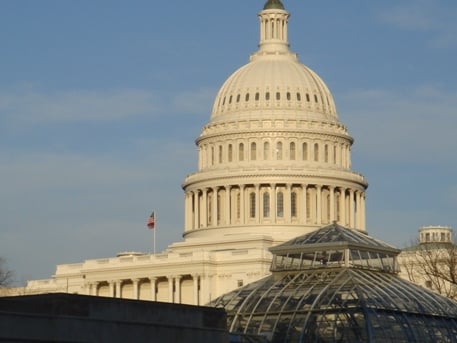An insurance group lauds a proposal requiring the SEC to merely examine a single standard of care. And what will come of the study? Not much, says a consumer advocate.
Senate negotiators last night approved a compromise on the fiduciary duty section of the financial regulatory reform bill that would combine elements of the House and Senate approaches to the issue.
Sen. Tim Johnson, D-S.D., proposed a change to the original Senate version, which called for the Securities and Exchange Commission to merely conduct a study to determine if both broker-dealers and investment advisers should be subject to a single standard of care. According to an aide to Mr. Johnson, the Senator's plan would not only require the regulator to conduct such a study, but would actually empower the SEC to set a single standard if the agency concludes that one is required to address regulatory gaps between investment advisers and broker-dealers.
Sen. Johnson's proposal is somwhat closer to the House provision, which directs the SEC to write a regulation imposing a universal fiduciary duty.
House members of the conference committee negotiating a final bill made an offer last week to replace the Senate language with the House language.
The House must now respond to the Senate counteroffer. The process will continue until a consensus is reached. Negotiators want to complete the entire 1,974-page bill by Thursday.
Rep. Barney Frank, D-Mass., chairman of the House-Senate conference, says that the fiduciary duty issue is a priority for the House side. And critics of the original Senate provision pointed out that it only allowed the SEC to conduct rulemaking under its current authority, which prevents it from promulgating a universal standard of care.
Nevertheless, an advocate for the fiduciary duty is not satisfied with the Senate compromise. Barbara Roper, director of investor protection at the Consumer Federation of America, asserts that the House language has been “gutted.”
Ms. Roper points to a requirement in the Senate compromise that says that the SEC study must show that regulatory “gaps, shortcomings, or overlap cannot be addressed through disclosure, antifraud, conflicts of interest, or other standards of conduct … that may be promulgated by the [SEC] or adopted by national securities associations.”
Ms. Roper contends that such language makes inaction the path of least resistance for the SEC.
“It would be virtually impossible to raise the standards for brokers,” Ms. Roper said. “They would be challenged in court.”
A leading insurance group praised Mr. Johnson's compromise. The National Association of Insurance and Financial Advisors says that the SEC study is required to sort out how the suitability standard is applied relative to the fiduciary standard before rulemaking proceeds.
“This is a complex issue that deserves more attention than it has received in the legislative process,” NAIFA President Thomas Currey said in a statement. “The results of the study will help answer the necessary questions to ensure the outcome is based on facts, not outdated or incorrect perceptions.”
Under current regulations, investment advisers must provide financial guidance that puts the best interests of a client first, and to disclose conflicts of interest. Broker-dealers and insurance agents are subject to a suitability standard, which requires them to ensure that an investment meets the financial needs and profile of a client.
Fiduciary advocates say that the standard better protects consumers. Suitability supporters argue that broker-dealers are already heavily regulated. They also claim that a higher standard of care would undermine their business model and force them to charge more for their services.
Like the House provision, the Senate counteroffer says that charging a commission and offering proprietary products or a limited menu of products is not necessarily a fiduciary breach. It also keeps a House language exempting broker-dealers from a continuing duty of care after a sale is closed.
Sen. Christopher Dodd, D-Conn., chairman of the Senate Banking Committee, acknowledged that a fiduciary duty is one of the areas of stark disagreement between the House and Senate.
“There's going to be more work on this before we're done,” he said last night.







